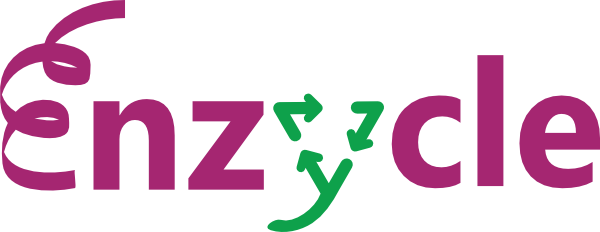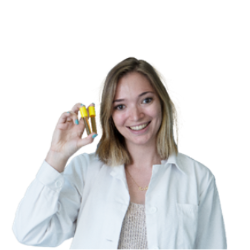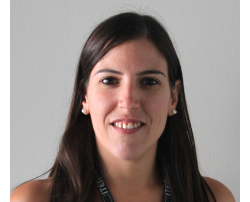
Technology Work packages
WP1: Polyolefins degrading enzyme identification and development
Objective:
Identification of individual microorganisms or consortia with high polyolefin-degrading activities, identification and characterization of the enzymes involved in the degradation process, and heterologous expression of selected polyolefin-degrading enzymes in E. coli and Pichia chassis.
Description of work:
A bibliographical research will be conducted to identify sampling locations with potential for the isolation of PE- and PP- degrading microorganisms, and the selected locations will be sampled and screened for polyolefin- degrading microorganisms. The samples displaying the highest degradation rates will be subjected to an adaptive evolution process, and the microbial consortia will be characterised by taxonomic analysis. Furthermore, the most promising consortia will be characterized through metagenomic and transcriptomic analysis with the aim of identifying the enzymes involved in the degradation process, and the detected enzymes will be characterized and heterologously expressed in bacteria and/or yeast host organisms.
Partners involved:
DAR (leader), ITENE, WR, BOKU, DAM
WP2: Polyesters degrading enzyme identification and development
Objective:
Identification of 3 polyester hydrolysing enzymes for hydrolysis of post- consumer PET; biochemical characterization and optimization of the expression platform; protein engineering for an enhanced performance
Description of work:
According to a metagenomic analysis, environmental samples are going to be collected from production and waste water plants. Genes encoding for PHE (polyester hydrolyzing enzymes) are isolated and biochemically characterized. For an efficient production process, bacterial (E.coli) and yeast (P. pastoris) expression systems will be evaluated. A computational analysis approach will be used for protein engineering and a rational design in order to increase enzyme activity and stability.
Partners involved:
UL, DAR, ITENE, BOKU, WR
WP3: Enzyme production processes
Objective:
Development of production processes for polyolefin-degrading enzymes and the development of a continuous production process for enzymes, including downstream processing and scale-up
Description of work:
This WP is dedicated to design a production process with the help of selected model enzymes and to make it ready for application of WP1 and WP2 derived candidates. For the development of the continuous process, a previously developed strain will be used as a host system. The downstream processing will be developed for both, intracellularly produced (E. coli) and secreted (P. pastoris) enzymes. A scale-up of the production process is planned for at least 900 L.
Partners involved:
BOKU, WR, ASA
WP4: Recycled process development
Objective:
Development of enzymatic depolymerization processes (multilayer packaging, post-consumer PET trays/clamshells, microplastics from wastewater treatment plants) and of immobilized enzymes for application in biofilter.
Description of work:
A pre-treatment process will ensure the improved accessibility to enzymes in multilayer packaging. For all three depolymerization approaches, an enzymatic degradation will be elaborated and lead to a degradation of multilayer packaging consisting of PET and polyolefin layers, PET- trays/clamshells and microplastics, containing PET and polyolefins. The breakdown products will be further characterized. For the microplastic degradation in particular, an immobilization of enzymes will be necessary in order to realize a biofilter application.
Partners involved:
WR, ITENE, UL, ACIB, FEY, DAM, INDO, ALI
Validation Work packages
WP5: Technical validation I: Microplastic degradation from WWTP
Objective:
Identification and quantification of microplastics in wastewater treatment plants; design, construction and implementation of a pilot plant for microplastic separation.
Description of work:
WP5 will quantify microplastics in different wastewater treatment plants. Specific filtration systems will help to separate microplastics and a microplastic degrading systems for enzyme addition and degradation will be designed based on inputs from the technical work packages. Furthermore, any synergistic effects of ENYZCLE enzymes for microplastic degradation on anaerobic digestion and composting will be evaluated. The sewage sludge will be analysed after the treatment with composting and anaerobic digestion in order to determine, whether the addition of ENZYCLE enzymes has an effect on the digestate quality.
Partners involved:
DAM, ITENE
WP6: Technical validation II: Elaboration of new polymers with monomers from plastic enzyme degradation
Objective:
Validation of novel enzymatic process for multilayer packaging and post- consumer PET trays/clamshell containers; Synthesis of new polymers from PET depolymerization products.
Description of work:
After finding good ways to pretreat and depolymerize post-consumer PET trays/clamshells and multilayer packages, the PET monomers are going to be characterized and tested for the production of new materials (polyol, PUR and PIR insulation foams, repolymerization of PET). At pilot scale these new materials are applied for yogurt cups/lids or flexible plastic packaging.
Partners involved:
SOPR, ITENE, UL, IND, FEYE, GREINER, ALI
WP7: Safety, environmental and techno-economic assessment
Objective:
Assessment of the sustainability under the perspective of LCA (life cycle assessment), LCC (life cycle costing) of the new recycled materials.
Description of work:
This WP is dedicated to the determination of the environmental sustainability of the enzyme production, the enzymatic recycling processes and proofs of concept. The environmental footprint is determined by conducting a life cycle assessment (LCA). Also a techno- economic assessement of products and processes is part of this evaluation. In order to ensure compliance with legal frameworks, a safety assessement of developed packages and films will be done as well.
Partners involved:
ITENE, acib, all partners
Crosscutting Work packages
WP8: Exploitation and dissemination, communication
Objective:
Providing research data for relevant audiences and ensure efficient exploitation; implementation of a comprehensive outreach program in order to raise awareness about the project and the plastic topic.
Description of work:
This WP will take care of an exploitation strategy that is perfectly aligned with dissemination measures. The consortium will engage with its relevant stakeholders and raise awareness about ENZYCLE technologies as a new solution for plastic treatment. The use of appropriate communication channels will create visibility.
Partners involved:
acib, ITENE, all Partners
WP9: Management










